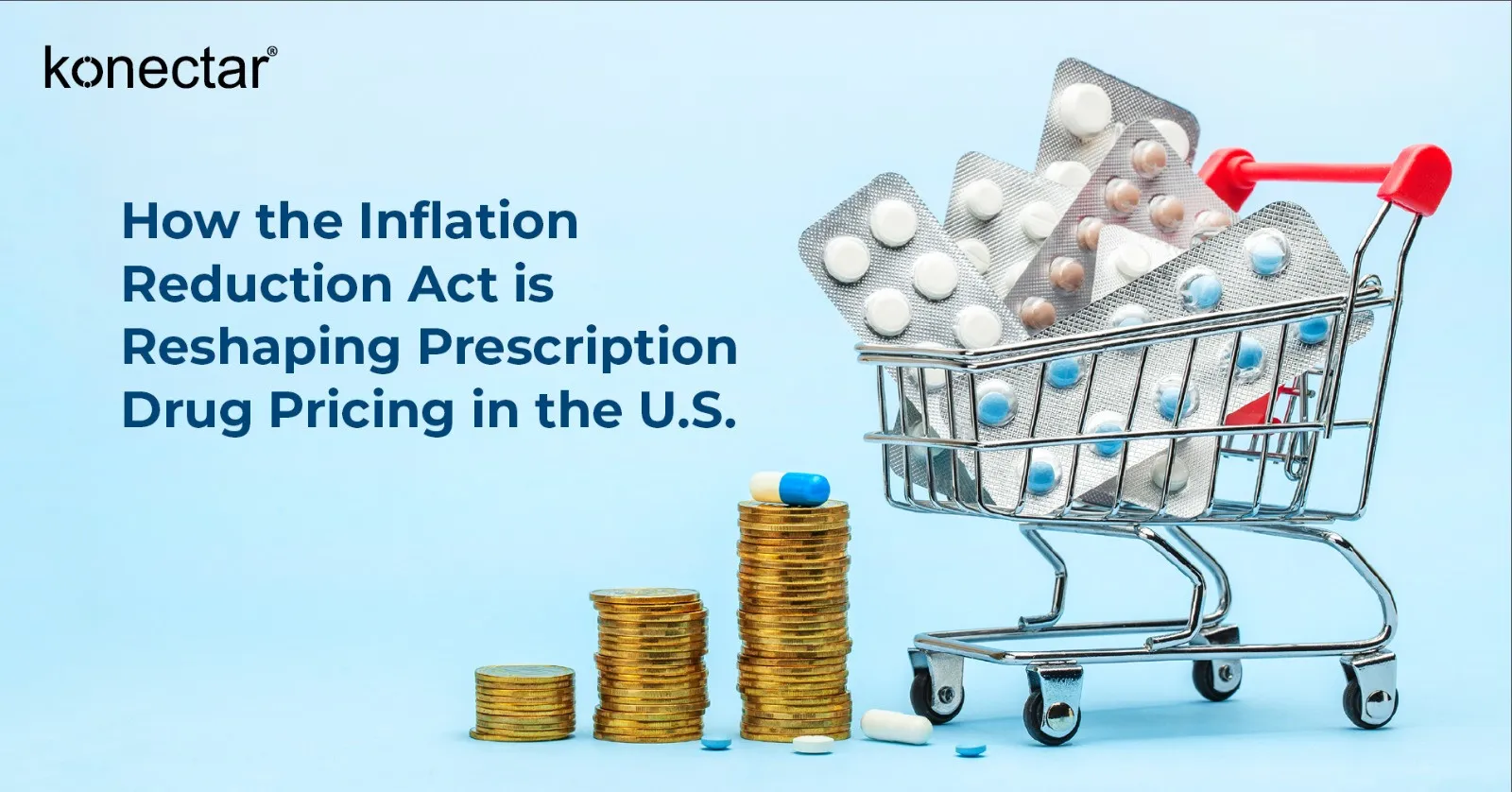31-01-2025
How the Inflation Reduction Act is Reshaping Prescription Drug Pricing in the U.S.

The Inflation Reduction Act (IRA) was signed into law in August 2022. It is one of the most significant healthcare reforms in U.S. history. This landmark legislation is designed to address the soaring costs of medications. An important problem which have burdened American families and the healthcare system for decades.
The Inflation Reduction Bill includes measures to lower prescription drug costs, making medications more affordable for millions of Americans.
The federal Inflation Reduction Act was primarily introduced to combat inflation, boost energy production, and reduce healthcare costs. The legislation spans various sectors, but one of its most significant focuses is reforming prescription drug pricing.
In this article:
- Why Drug Pricing Reform Became a Priority?
- Key Provisions Impacting Prescription Drug Pricing
- Immediate Impact on Consumers
- Long-Term Effects on the Pharmaceutical Industry
- FAQs
Why Drug Pricing Reform Became a Priority?
The urgency for drug pricing reform in the U.S. grew as prescription costs surged at an alarming pace. A 2021 report by the House Oversight Committee found that drug prices rose three times faster than inflation in the last 10 years. The average price of medications has risen sharply, burdening both insured and uninsured individuals.
Many reasons have driven up prescription drug prices. The federal government cannot negotiate prices. Companies in the pharmaceutical industry use monopolistic practices. Research and development also cost a lot. Because of this, patients pay high out-of-pocket costs. They often need these drugs to treat chronic diseases like diabetes, heart disease, and cancer.
Lowering drug costs can ease this burden. The government aims to improve health and reduce care gaps. This is especially important for low- and middle-income families.
Key Provisions Impacting Prescription Drug Pricing
The new Inflation Reduction Act includes several key provisions that directly impact prescription drug pricing. These provisions are intended to tackle the root causes of high drug costs and improve affordability for consumers. Some of the most notable reforms include:
1. Medicare Price Negotiations:
One major change in the IRA is that Medicare can now negotiate drug prices directly with U.S. pharmaceutical companies. Previously, Medicare was prohibited from negotiating prices for prescription drugs, leaving beneficiaries to pay the high prices set by the drug manufacturers.
Under the IRA, starting in 2026, Medicare will introduce lower prices for 10 prescription drugs through negotiations with participating medical company representatives. These negotiated prices will offer significant savings, ranging from 38% to 79% off the list prices.
2. Price Caps on Insulin:
One of the most immediately impactful provisions of the IRA is the cap on insulin prices for Medicare beneficiaries. Starting in 2023, Medicare set a $35 monthly cap on insulin costs for people with diabetes.
This provision reduced the financial burden on millions of diabetics and improved medication adherence. Additionally, the details of Inflation Reduction Act allow for the expansion of this cap to private insurance plans in the future.
3. Out-of-Pocket Maximums:
Starting from 2025, Medicare Part D plans will introduce a cap on annual out-of-pocket costs for prescription drugs, limiting them to $2,000. Additionally, beneficiaries will have the option to spread their out-of-pocket costs into manageable monthly installment payments. This change aims to provide more predictable and affordable payment options for high-cost medications.
4. Most Vaccines will be Free for Medicare Beneficiaries:
Another key provision of the inflation recovery act is the expansion of free vaccines for Medicare beneficiaries. The plans cover the majority of vaccines at no additional cost. All adult vaccines recommended by the CDC are covered with no copayments or deductibles. This includes vaccines for shingles, whooping cough, tetanus, and other recommended immunizations.
5. Penalties for Price Increases Above Inflation:
The inflation protection act also targets pharmaceutical companies that increase the prices of their drugs at a rate faster than inflation. Under the new law, drug makers will face penalties if they raise prices faster than inflation. This provision aims to curb excessive price hikes and provide some stability in drug pricing.
Immediate Impact on Consumers
While the full effects of the Inflation Reduction Act will be felt over the coming years, there have already been notable immediate impacts on consumers. The introduction of price negotiations through Medicare is expected to have an even more profound long-term effect, though it won’t take full effect until 2026.
The overall out-of-pocket cap for prescription drugs will also provide immediate relief. This will allow Medicare beneficiaries to budget more effectively for their healthcare expenses. With this new cap, individuals who have multiple chronic conditions and take several medications will no longer have to face the uncertainty of spiraling prescription drug costs.
Long-Term Effects on the Pharmaceutical Industry
The Inflation Reduction Act Bill is a big step toward making prescription drugs more affordable. But challenges remain.
Pharmaceutical companies may try to offset losses from price negotiations. They could raise prices on other drugs or shift costs to patients in different ways. Many companies may also focus on biologics instead of small molecules. Biologics have 11 years of exclusivity, compared to 7 years for small molecules. This longer period allows companies to charge higher launch prices to recover costs before the drug is subject to Federal Maximum Price rules.
Developing new drugs is very expensive and risky. It can cost over a billion dollars, and many drugs fail in trials. Because of price controls, companies may cut back on research and development due to lower profits.
The IRA mainly helps Medicare beneficiaries. But many uninsured and underinsured Americans may not see these benefits. Adding private insurance plans to price negotiations in the future will help close this gap. It can ensure everyone has access to affordable medicines.
FAQs
- What is the Inflation Reduction Act (IRA)?
The Inflation Reduction Act, signed into law in August 2022, is a U.S. federal law aimed at reducing inflation and lowering prescription drug costs. A key focus of the act is making medications more affordable by allowing Medicare to negotiate drug prices and capping out-of-pocket costs for beneficiaries.
- Who benefits the most from the IRA’s prescription drug provisions?
Primarily, Medicare beneficiaries benefit the most from the IRA's drug pricing reforms. Seniors and individuals with chronic illnesses who rely on costly medications will see significant savings. However, broader effects on drug pricing could eventually impact private insurance markets as well.
- How does the IRA address health inequity?
The IRA helps reduce medication costs for low-income seniors and Medicare recipients, but it does not directly address prescription drug affordability for uninsured or underinsured Americans. Further policy efforts may be needed to close this gap.
- Will the IRA lead to lower healthcare premiums?
Potentially, as lower drug costs could reduce overall healthcare spending. However, the immediate impact on private insurance premiums remains uncertain.





